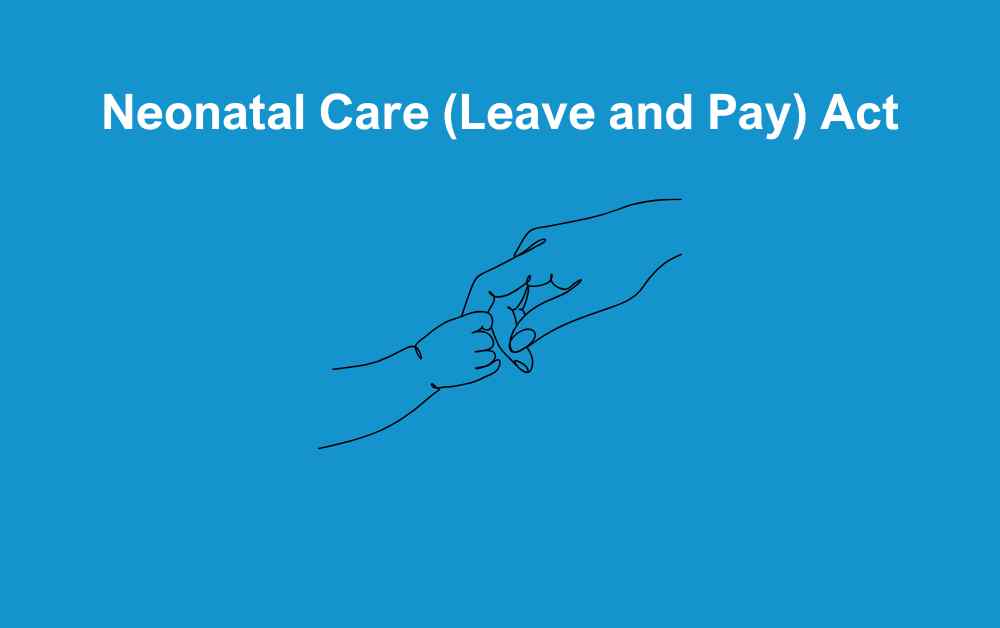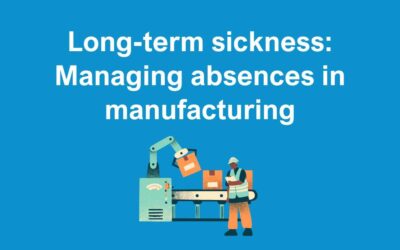Almost three years have passed since the Neonatal Care (Leave and Pay) Act first passed its initial reading in Parliament — and now it has become law.
From 6 April 2025, the Act is fully in force, providing working parents—especially those whose newborns need neonatal care—with much-needed support through paid leave and job protection. By acknowledging the immense emotional and practical pressures faced by families with premature or sick babies, this legislation offers a compassionate and proactive approach to helping parents focus on what matters most during a critical time.
What is Neonatal Care?
Neonatal care is a type of care babies will receive in a neonatal unit if they are born sick, at a low birthweight, or premature. ‘Neonatal’ means a newborn, or the first 28 days of life. In the UK, it is also estimated that approximately one in seven babies require such care. This can range from a few days to several weeks or even months.
According to Bliss, each year over 90,000 babies are born sick or premature and need neonatal care in the UK. That is around 250 babies every day.
This period can be emotionally and financially draining for parents. They are faced with the impossible challenge of balancing work commitments with the demands of being present for their child’s medical needs. The legislation will be introduced to address this and provide parents the crucial support they need.
What neonatal care covers
Neonatal care may involve:
-
medical treatment provided in a hospital
-
care delivered to the baby after discharge from hospital, under the supervision of a consultant
-
ongoing monitoring and visits from healthcare professionals organised by the hospital
-
palliative or end-of-life care
Neonatal care does not always happen in a neonatal unit. If a baby under 28 days old begins receiving neonatal care, parents will qualify for neonatal care leave.
Neonatal Leave and Pay Entitlement
The Neonatal Care (Leave and Pay) Act gives parents up to 12 weeks paid leave. This includes partners of birth parents and is in addition to other entitlements such as paternity and maternity leave.
Parents are entitled to neonatal leave and pay if their baby is admitted to hospital up to 28 days old. This applies if the baby has a continuous stay in hospital of 7 days or more.
The right to pay during neonatal leave is available to staff with at least 26 weeks’ continuous service. It is also available to parents whose weekly earnings are at or above the lower earnings limit. This is currently £125 per week.
For employees who have less than 26 weeks’ continuous service, they will have the right to unpaid neonatal care leave. This will be from the first day of employment. This ensuring that parents are supported regardless of their length of service.
Leave and pay are available in two tiers:
Tier one covers the time when the child is receiving neonatal care, including the week following the end of that care.
Tier two applies to the period after tier one and up to 68 weeks from the date of the child’s birth.
Employee Rights
Employees have a statutory right to take this time off. They are protected from dismissal or disciplinary action while taking neonatal leave. If employers unfairly stop their staff taking this time off, they may be taken to an employment tribunal.
The employee also has the right to return to their same job if they are absent for up to 26 weeks.
Employee Notice Period
The timing for employees to give notice to their employer depends on which tier of leave they are taking:
Tier one
Employees must inform their employer before they are due to start work on the first day of leave. This will be after the child has already received seven consecutive days of neonatal care.
Notice for tier one leave does not need to be given in writing.
Tier two
Employees must give written notice. If taking one week off, they must tell their employer at least 15 days before the start date. If taking two or more weeks, they must give 28 days’ notice.
Some employers may accept notice that is not in writing, so employees should check their contract or policies. Tier two leave must be taken as consecutive weeks and cannot be split.
Other Parental Support
There are a range of statutory rights for families that employees can take to care for their new baby. This includes:
- Maternity leave
- Paternity leave
- Parental leave
- Shared parental leave
- Adoption leave
As an employer, you can offer your staff additional paid or unpaid time off. This can either be in line with company policies or as a gesture of goodwill. April is just around the corner and we recommend including this as part of your company policies now.
Key Changes to Make
Employers should have already taken a proactive steps to ensure compliance and readiness. Key actions include:
- Policy Updates: Reviewing and updating workplace policies to reflect the new entitlements under the Neonatal Care (Leave and Pay) Act 2023.
- Training and Awareness: Providing training for HR teams and managers to ensure they understand the provisions of the Act and can support affected employees effectively.
- Communication: Informing employees about the new entitlements to ensure they are aware of their rights and how to access them.
How The HR Booth Can Help
At The HR Booth, we understand the complexities that come with legislative changes and the challenges employers may face in implementing them effectively. We are here to help your organisation navigate the requirements of the Neonatal Care (Leave and Pay) Act 2023 and ensure a smooth transition.
Our support includes:
- Policy Development and Updates: We can help you review and update your existing policies to ensure compliance with the Act.
- Manager Training: Our training sessions will equip your managers with the knowledge and confidence to handle requests for neonatal care leave, ensuring consistent and empathetic support for employees.
- HR Advice and Support: Whether you need one-off advice or ongoing HR support, our team is here to guide you through the practical implications of the legislation.
- Employee Communication: We can assist in developing clear and accessible communications to inform your workforce about their new entitlements and how to access them.
Partnering with The HR Booth means you can focus on running your business while we ensure your HR processes are compliant, effective, and supportive of your employees’ needs.
Contact Us
The Neonatal Care (Leave and Pay) Act 2023 represents a compassionate and forward-thinking approach to supporting working families. By recognising the unique challenges faced by parents of premature and sick newborns, the legislation provides crucial financial and emotional relief. Both families and employers should prepare for the positive changes this Act will bring, fostering a society that values care, understanding, and support in times of need.
If you would like more information on the Neonatal Leave and Pay Act and how this should be included in your employee handbook and contracts, get in touch.







